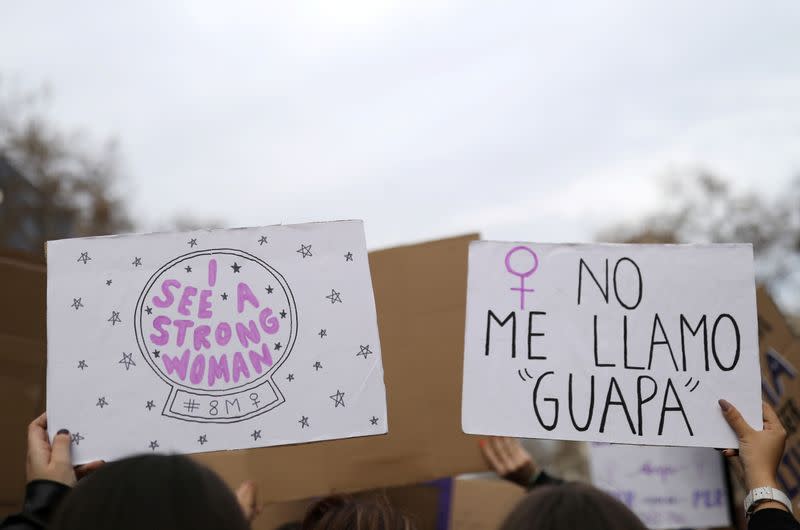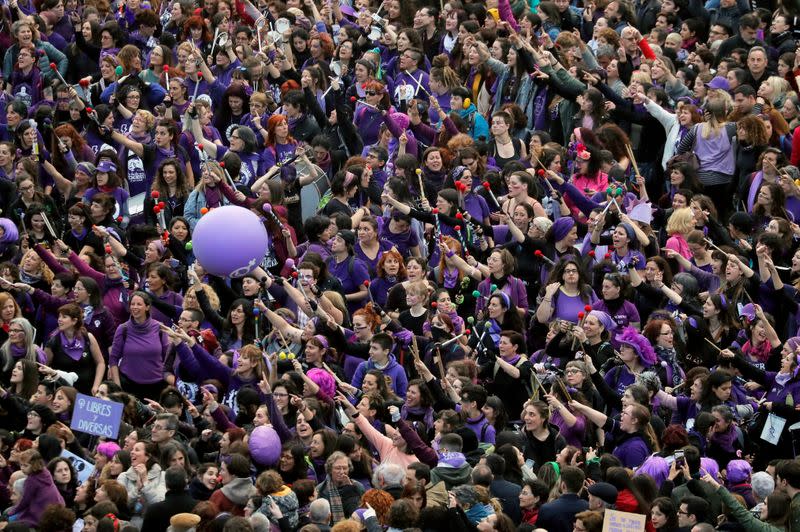More Spanish girls report sexual abuse despite progress on gender
By Clara-Laeila Laudette
MADRID (Reuters) - The number of teenage girls saying they felt pressured into sexual activity has almost doubled in seven years in Spain to more than one in 10 of respondents, a study by the Equality Ministry showed on Friday.
Increased social media and internet usage has helped raise awareness of abuse but also brought new forms of exploitation and risky behaviour, it said, in its first study of gender-based violence and sexist attitudes among 14-20-year-olds since 2013.
"Teenagers' perception of machismo is much keener now thanks to better access to information and global feminist movements," State Secretary for Equality Noelia Vera told a news conference.
"But having clear opinions about gender violence doesn't free you from suffering it."
Almost half of teenage girls said they had been sent sexual photos online and more than two in five had been asked to send sexual photos of themselves, the study showed, while nearly one in four had been asked to engage in virtual sex.
Dangerous online behaviours, such as using a webcam with a stranger or telling them your name, home or school address, all jumped significantly in 2020 compared to 2013, with a quarter of teens admitting they gave a stranger their home address online.
More than 8% of teens said they posted or sent sexually explicit photos of themselves online in 2020, up from 1.7% in 2013 - while nearly one in five met with a stranger they encountered on the internet, close to double the 2013 rate.
On the upside, far fewer girls reported enduring control-based violence such as their partner "deciding for them down to the last detail" - down to 5% from 2013's 16% - or isolating them from their friends, which dropped to 3.7% from 11.2%.
The study's director Maria Jose Diaz praised the efforts of teachers and parents but said they were not reaching everyone.
"We have a vaccine, a Spanish vaccine: socio-sexual education which moves away from domination-submission dynamics and towards relationships based on mutual respect and equality," she said, noting that more than 17% of girls still reported experiencing psychological abuse and control-based violence.
"But we need to extend that education to the other half of teens who say they've not received it."
(Reporting by Clara-Laeila Laudette; editing by Andrei Khalip and Philippa Fletcher)




